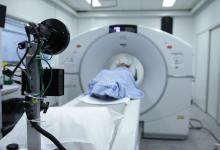Biosimilars for Rheum Disease: Failure to Launch Save

The availability of biologic biosimilars has thus far had negligible impact on prescribing practices in the United States, in stark contrast to what has been observed in some European countries, researchers reported.
Analysis of claims data from a large commercial health plan found that the uptake of biosimilar infliximab was less than 1% during the years 2016 to 2019, resulting in minimal cost saving, according to Seoyoung C. Kim, MD, and colleagues from Brigham and Women's Hospital in Boston.
In comparison, there has been a substantial 64% discount in costs with mandatory non-medical switching from originator to biosimilar infliximab in Denmark, the researchers reported online in Arthritis & Rheumatology.
Since 2016, a total of 12 biosimilars have been approved for use in rheumatic diseases in the U.S. Four of these are for infliximab (originator Remicade), five for adalimumab (Humira), two are for etanercept (Enbrel), and one for rituximab (Rituxan). Yet only two of the infliximab biosimilars are on the market (infliximab-dyyb, or Inflectra, and infliximab-abda, or Renflexis).
"Biosimilars have largely failed to launch in the United States," stated Jinoos Yazdany, MD, of the University of California San Francisco, in an accompanying editorial. She pointed to several features of the U.S. prescription drug system that allow biologic originators to prop up their franchises, and prices, against biosimilar competition.
The Numbers
The analysis included 1.1 million prescriptions for tumor necrosis factor (TNF) inhibitors provided to 95,906 patients during the years following the approval of the two infliximab biosimilars. Adalimumab was the most widely used agent, representing 45% of all TNF inhibitor prescriptions in the first quarter of 2016 and 49% in the first quarter of 2019.
During those two quarters, the market shares were 24% and 20% for etanercept, respectively, 21% and 20% for brand-name infliximab, and around 5% each for certolizumab (Cimzia) and golimumab (Simponi). Biosimilar infliximab accounted for only 0.1% in the second quarter of 2017 and 0.9% in the first quarter of 2019.
The mean quarterly amounts paid by insurance for each patient increased for all five originator biologics over the course of the study. For adalimumab, payments rose from $7,283 in the first quarter of 2016 to $11,329 in the first quarter of 2017 and to $13,740 in the first quarter of 2019. For brand-name infliximab, payments increased from $8,442 in the first quarter of 2016 to $8,656 in the first quarter of 2017 and to $10,578 in the first quarter of 2019. For biosimilar infliximab, payments for the first quarter of 2017 were $8,322, rising to $8,464 in the first quarter of 2019.
Median patient out-of-pocket expenses throughout the study period were $37 per prescription for adalimumab and certolizumab, $36 for golimumab, $61 for etanercept, and $0 for brand-name and biosimilar infliximab.
"Combined, these findings suggest that current cost savings from infliximab biosimilars in the U.S. alone are insufficient to promote their widespread use and that comparable savings to those achieved in some European countries may not be possible without systemic reform of the U.S. pharmaceutical market," Kim and colleagues concluded.
The Reasons
In her editorial, Yazdany noted that the skyrocketing cost of drugs in the U.S. is largely a result of spending on specialty biologic agents, with an increase of 50% for these drugs from 2014 to 2018, reaching $125 billion. "Many policy analysts, including the Congressional Budget Office, forecasted that biosimilars would curb spending by finally introducing competition into the marketplace," she wrote. Yet only 9% of the $1 billion in decreased costs projected by the budget office has been achieved.
Four factors "have created formidable legal, financial and regulatory barriers to U.S. market entry and uptake," she argued.
The first is patent protection and its ramifications. "Unprecedented in scale are the tactics used by drug makers to block the entry of biosimilars into the market after originator biologic patents expire," stated Yazdany, who is also chief of the division of rheumatology at the Zuckerberg San Francisco General Hospital. Companies that manufacture the originators are granted 12 years of exclusivity by the Biologics and Price Competition and Innovation Act, but they have filed lawsuits and patent applications to extend that period.
For example, AbbVie, Humira's manufacturer, has filed at least 200 patent applications for various refinements to the drug itself, methods of manufacture, and other related factors, and the launch of one adalimumab biosimilar, which was approved in 2016, has been postponed until 2023. "During this time, Humira's price has increased 18% each year, rising from $16,000 to over $30,000 from 2012 to 2016 alone," she observed.
A recently introduced law entitled the Biologic Patent Transparency Act is intended to limit the enforcement of these patent extensions, but it is uncertain what will happen with the legislation.
A second factor involves rebates, with pharmacy benefit managers and other payers offering rebates that can reach half the originator drug's list price and suggesting that rebates could be withheld if biosimilars are given priority on formularies. The result could actually be higher costs for biosimilars than originators.
Solutions for the "rebate trap" have been elusive, and a 2017 lawsuit by Pfizer, maker of a biosimilar infliximab, against Remicade manufacturer Johnson & Johnson is ongoing.
A third obstacle is clinicians' unwillingness to prescribe biosimilars, whether because of a lack of inclusion on formularies, reimbursement concerns, or a simple lack of knowledge about the drugs. "The alignment of financial incentives will need to be coupled with targeted and effective education to overcome prescriber inertia," Yazdany wrote.
The fourth contributing factor involves regulatory challenges, including requirements that biosimilars have no significant differences from originators in safety and efficacy, questions about whether approval for one indication should be extended to other indications (extrapolation), and the issue of interchangeability. For the FDA to grant the interchangeable designation, biosimilar manufacturers must provide additional data on risks involved in switching products, and pharmacists could then substitute the biosimilar without notifying the healthcare provider. Thus far, no biosimilar has gained such status.
The Cautions
"Given concerns about immunogenicity, efficacy, and safety, rheumatologists are understandably anxious about unintended consequences of this [interchangeability] designation for biosimilars, as outlined in a recent position statement by the ACR [American College of Rheumatology]," Yazdany wrote.
Among the concerns and cautions raised in the ACR statement were the following:
- Only the provider should be able to authorize the substitution of a biosimilar.
- There is a need for postmarketing surveillance for both adults and children.
- Extrapolation for multiple indications should be done with caution, "because some patients with rheumatic diseases may be more susceptible to adverse drug reactions, and because disease states in some organ systems respond differently to one biologic compared to another."
All of the four factors Yazdany identified -- patent protection, rebates, prescriber inertia, and regulatory concerns -- need to be addressed. "Each of these will need to be tackled in turn to reduce the legal, financial, regulatory, and clinical barriers that have impeded the development of a more vibrant biosimilar market that fosters competition and leads to cost savings," she concluded.
The study was supported by the Division of Pharmacoepidemiology and Pharmacoeconomics, Department of Medicine, Brigham and Women's Hospital and Arnold Ventures.
The authors and their institution disclosed financial relationships with Pfizer, AbbVie, Bristol-Myers Squibb, Roche, the Anthem Public Policy Instditute, Arnold Ventures, and the Open Society Foundations.
The editorialist reported financial relationships with Pfizer, Genentech, Eli Lilly, and AstraZeneca.










If you are a health practitioner, you may Login/Register to comment.
Due to the nature of these comment forums, only health practitioners are allowed to comment at this time.